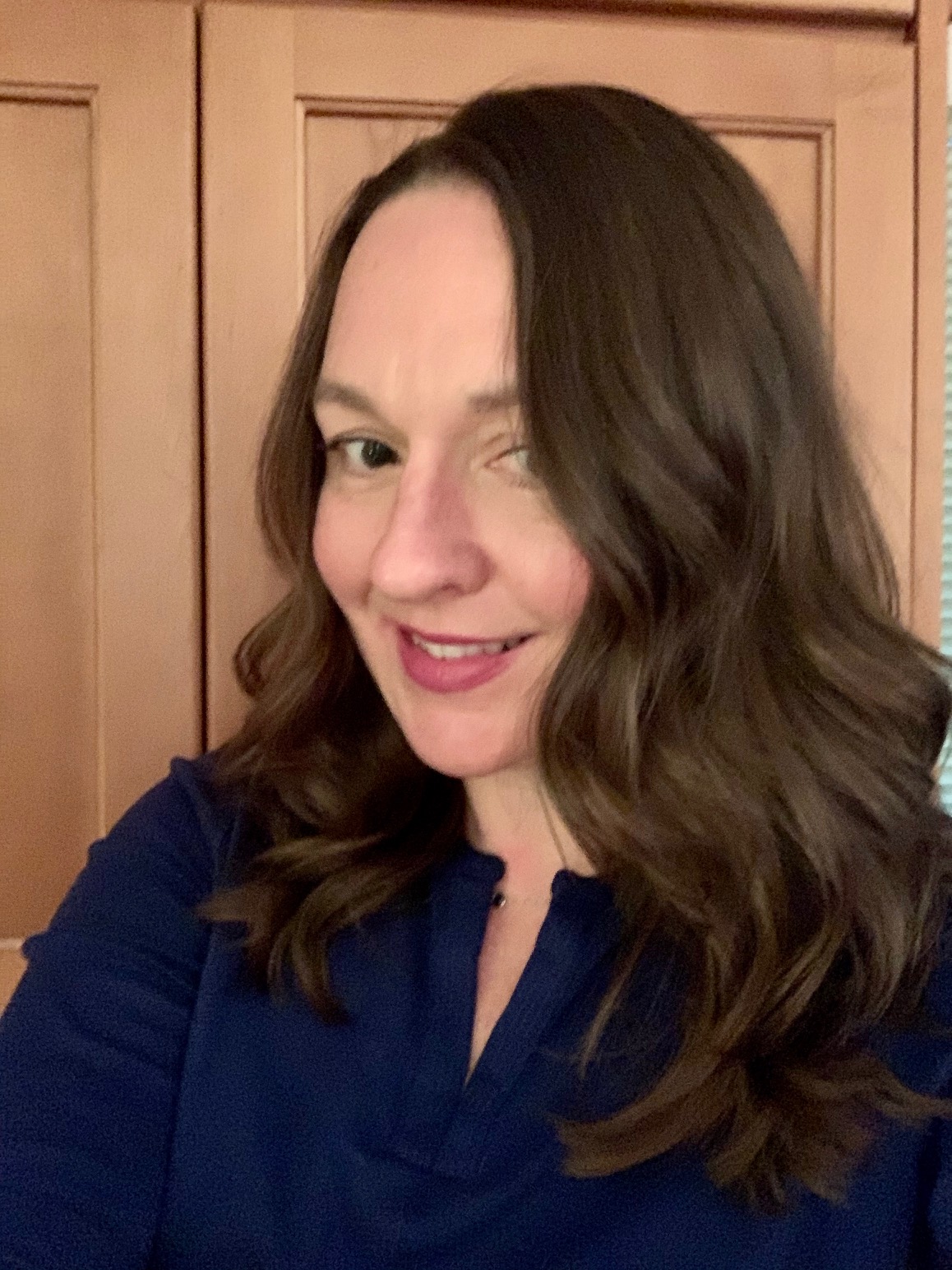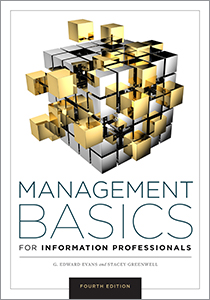An interview with Stacey Greenwell about management basics and academic librarianship
Stacey Greenwell is coauthor (with G. Edward Evans) of the fourth edition of Management Basics for Information Professionals and the second edition of Academic Librarianship. We had the chance to speak with her recently about their collaboration, some of the books' new features, and the ways in which the COVID-19 pandemic has already changed the future of academic librarianship.
Before we dive into your books, I wanted to ask you about something that's probably on the minds of a lot of academic librarians right now. Namely, how the pandemic and the necessity of distance learning already changed academic librarianship. Do you think these are permanent changes?
Since March, many libraries have offered online-only information services. We’re still getting traffic, and we’re mostly able to help users via chat, text, or email, though sometimes a phone call or  video session is needed. For instruction, we’re delivering content in creative ways with video sessions, online tutorials, and other embedded course content. I expect we will continue to do that beyond the pandemic. Likewise, we’ve seen that some academic librarian responsibilities can be performed anywhere, and I expect working from home will be much more prevalent than it was pre-pandemic.
video session is needed. For instruction, we’re delivering content in creative ways with video sessions, online tutorials, and other embedded course content. I expect we will continue to do that beyond the pandemic. Likewise, we’ve seen that some academic librarian responsibilities can be performed anywhere, and I expect working from home will be much more prevalent than it was pre-pandemic.
Okay, let's talk about the books. How did you come to be collaborators?
First, I had the honor of working with Ed [Evans] on the second edition of Academic Librarianship. Shortly after we submitted that manuscript, he asked if I would assist with this project. I said yes of course, as Ed is a legend in library textbooks, plus we had a terrific experience working together on Academic Librarianship.
How I first got involved in Academic Librarianship is an entirely different experience. I used the first edition of AL in my teaching, though I noticed the book was getting a bit dated, and I needed to supplement it more heavily each semester. I contacted the authors with some suggestions should they decide to do a second edition. After a few months of phone calls and email exchanges, I signed on to incorporate those suggestions and more as Ed's new co-author!
Was it daunting to work on the second edition of such a classic text?
It was, though Ed is a great mentor and collaborator. I think we work very well together. His books have such a strong foundation, and one of my primary contributions is to bring in current and future trends.
Moving on to Management Basics for Information Professionals ... How did you approach making the necessary revisions and updates while still honoring the core of the work, and what are some new aspects of the fourth edition that you are the most proud of?
I was able to practice this through our work together on Academic Librarianship's second edition, so it was easier to do with this project. Ed tends to focus heavily on looking at one's organizational environment, and I think we expanded on that well in this project. Are you in a non-profit or for-profit sector? Public or private? The environment you're in has a substantial impact on how you can approach managerial decisions. I've always enjoyed the sidebars in Ed's work as they bring real-world (and sometimes humorous) examples into the text, so we put a good bit of effort into expanding and adding new sidebars.
Budgeting skills seem more important now than ever before, especially when it comes to being both a manager *and* a leader. Can you offer a few words of budgeting wisdom you wish you’d had when you began your career?
 My best advice is to start learning as soon as you can. Ed and I point out how many future librarians balk at the idea of management, but in reality, most of us end up in management positions at some point in our career, often much earlier than we anticipated. Reading and participating in budget-related course assignments are important, of course, but it helps enormously if you can find opportunities for real-world practice. Several of my colleagues and I benefited from getting involved in professional organization leadership roles. Many of those roles have opportunities for budgeting for program planning, division activities, etc. These roles are a somewhat low-risk way to develop budgeting and other skills.
My best advice is to start learning as soon as you can. Ed and I point out how many future librarians balk at the idea of management, but in reality, most of us end up in management positions at some point in our career, often much earlier than we anticipated. Reading and participating in budget-related course assignments are important, of course, but it helps enormously if you can find opportunities for real-world practice. Several of my colleagues and I benefited from getting involved in professional organization leadership roles. Many of those roles have opportunities for budgeting for program planning, division activities, etc. These roles are a somewhat low-risk way to develop budgeting and other skills.
What are some things you do personally to maintain a work/life balance?
It's important to find time for things you enjoy. Personally I enjoy spending time with my family, traveling, running, and gardening. I took up tennis lessons while working on the second edition of Academic Librarianship, and I've continued playing through this project and beyond. Sometimes you have to get away from your writing, and for me, running, playing tennis, or just taking a walk is a great way to refocus.
In light of everything that's going on, what’s your outlook for the Fall 2020 semester?
Fall plans are changing daily across the country. I expect they will continue to change over the next few weeks, and I wouldn’t be surprised if many schools were online only toward the end of the year.
Learn more at the ALA Store.
